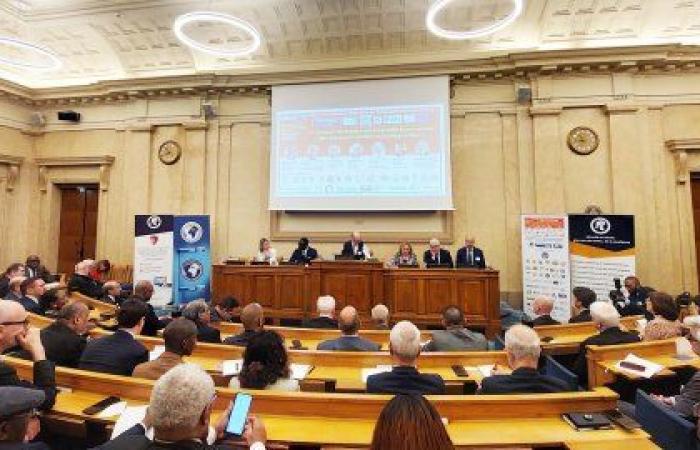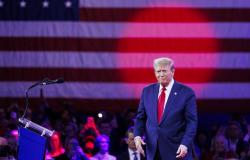Cheikh Ahmed Ould Mohamed. Photo © DR
Mauritania is set to become a major producer of natural gas, which will lead to an influx of foreign capital. Nouakchott will have to manage this influx as best it can to counter macroeconomic and governance problems, which could compromise the country’s development.
.
A contribution by Cheikh Ahmed Ould Mohamed
Engineer, Head of Studies and Development Department
of the Baie du Repos Port Establishment
Nouadhibou (Mauritania)
Founder of the BE MEGELEC NDB design office
.
For more than five years, Mauritania and Senegal have been working on a joint gas project known as Grand Tortue Ahmeyim (GTA), involving the drilling of two wells.
According to official estimates, annual production should reach 2.5 million tonnes in its first phase, then, after the development of a second phase which should start in 2025, 5 million tonnes, to peak in the third phase (2030) at around 10 million tonnes per year.
Annual revenues for Mauritania are expected to be in the order of 100 million dollars per year from the first phase of the project. Enough to stir up the impatience of Mauritanians who hope that the start of gas extraction will launch the process of economic development in the country.
This expectation fuels reflections on the political, economic and security levels, as well as on the position of our country in the region. But the specter of mismanagement, corruption and imbalances in governance continues to hover in people’s minds, for fear that it will hinder the path of progress and development…
How soon can Mauritanians expect to see the country’s economy improve and grow? Will the extractive industries lift thousands of young people out of unemployment, which affects more than 30% of them, according to official figures?
Revenue management is one of the main responsibilities of our government, which must put in place procedures to regulate the control of public funds and their redistribution. While gas resources are obviously not inexhaustible, their management can generate multiple socio-economic benefits throughout our country, helping to establish long-term solutions that strengthen investor confidence, improve access to markets and support competitiveness.
The gas industry is essential to the national economy. Of course, challenges related to the regulation of tax policies and access to markets limit its growth and require the government to stimulate the gross domestic product, finance infrastructure, education, health care and other products and services. Not to mention maintaining stable jobs within the middle class which could play an important role in sustainable development and combating youth unemployment.
.
A thousand and one objectives
.
The government strives to improve the quality of life of our citizens and this involves pursuing different objectives. For example, increasing GDP growth, reducing poverty, generating employment, keeping inflation low, creating a conducive economic environment and providing quality public services to all.
This is a lot and the management of public revenues from gas exploitation is a major challenge for our country. This will involve opting for investments leading to greater production capacity and increased economic diversification, ultimately leading to a higher standard of living for all our fellow citizens.
Conversely, poor management would waste the opportunities offered by non-renewable gas resources and reduce the prospects of meeting the challenges facing the country.
It is therefore necessary to set up a gas strategic orientation committee involving all the State’s partners in order to take the necessary measures to ensure particular monitoring in the reconfiguration of the national economy adapted to opportunities. and issues of our country. This can broaden national consensus around inclusive and participatory governance of the sector and the management of revenues from the exploitation of gas resources.
It is important to understand that this production will constitute a significant part of our energy supply in the years to come, without mutilating our ability to become a leading choice of supply for many other countries.
It is certain that the start of extraction will make Mauritania a new focus of attention for gas importing countries, particularly in Europe, which is so close to our coasts and increasingly demanding in gas. This shows the importance of the challenges that must be met quickly for our country to take its place in the global gas mix. This requires us to develop an economically viable industry that meets both environmental and competitive criteria.
.
The race for favors
is open
.
There is no doubt that this affair places Mauritania, as well as Senegal, at the heart of international strategic orientations in the field of energy. The arrival of our countries in this sector will open the way to major transformations, leading to the revision of the policies of certain countries in the region.
In Nouakchott, the race for favors has begun with the opening of new consulates and embassies, while older bilateral relations are being consolidated.
The State benefits from its disengagement from exploration costs, avoiding the setbacks of fruitless research. Thanks to the support of the best international companies in this field, it also has a share of the production in the form of royalties: never less than 10%, as specified in the Hydrocarbons Code. It has the right to increase this percentage since it reaches 14% in the GTA project and even 29% with regard to the Bir Allah field, not to mention various other advantages on profits.
But there are many drawbacks. Starting with the very long duration of the contracts concluded between the State and large companies: it can exceed half a century for gas, a very long period considering the acceleration of changes in the global energy sector. The world can thus make a qualitative shift towards other energy sources before the end of the contract… while the longevity of this lease hides an attack on the rights of future generations and their share of our national wealth.
.
Protect the ecosystem
.
The Sahel region shared between Mauritania and Senegal is a region very rich in flora and fauna. Thousands of kilometers of Saharan desert lead to fertile soil, watered by the Senegal River, offering a resting place to millions of aquatic birds on their journey between Africa and temperate countries. Large companies involved in the exploitation of hydrocarbons must provide maximum guarantees to protect the Mauritanian ecosystem…
Faced with the challenges linked to climate change, we must be concerned with a long-term national approach that respects our commitments made during the Paris Agreement: we have already started to contribute to the reduction of greenhouse gas emissions. tight.
To conclude, I would like to point out that the gas sector must be treated in close symbiosis with other economic, social and environmental sectors in order to promote effective diversification to escape harmful dependencies. Our gas strategy must be participatory and involve political actors, both parliamentary and civil, through transparent inclusion mechanisms. It is indeed by taking into account our specific situation, with the participation of all, that the exploitation of our gas resources must be carried out.
………
FROM THE SAME AUTHOR :
Cheikh Ahmed Ould Mohamed: Mauritania’s assets to become the future African champion of green hydrogen
.
◊ ◊ ◊ ◊ ◊ ◊ ◊ ◊ ◊ ◊ ◊ ◊ ◊ ◊ ◊ ◊ ◊ ◊ ◊ ◊ ◊ ◊ ◊ ◊ ◊ ◊ ◊ ◊ ◊ ◊ ◊ ◊ ◊◊ ◊ ◊ ◊ ◊ ◊ ◊ ◊ ◊ ◊ ◊ ◊ ◊ ◊ ◊ ◊ ◊ ◊ ◊ ◊ ◊ ◊ ◊ ◊ ◊ ◊ ◊ ◊ ◊ ◊ ◊ ◊ ◊ ◊ ◊ ◊ ◊ ◊
.
REPLAY CMAAP 13 / Great success for the XIIIe Conference of African Ambassadors of Paris, organized at the Salle Colbert of the National Assembly
A view of the Salle Colbert of the National Assembly, where the XIIIe Conference of African Ambassadors in Paris, May 30, 2024. © Steve Lorcy
.
◊ ◊ ◊ ◊ ◊ ◊ ◊ ◊ ◊ ◊ ◊ ◊ ◊ ◊ ◊ ◊ ◊ ◊ ◊ ◊ ◊ ◊ ◊ ◊ ◊ ◊ ◊ ◊ ◊ ◊ ◊ ◊ ◊◊ ◊ ◊ ◊ ◊ ◊ ◊ ◊ ◊ ◊ ◊ ◊ ◊ ◊ ◊ ◊ ◊ ◊ ◊ ◊ ◊ ◊ ◊ ◊ ◊ ◊ ◊ ◊ ◊ ◊ ◊ ◊ ◊ ◊ ◊ ◊ ◊ ◊ ◊ ◊ ◊ ◊
.
CLICK on the image below TO SEE the REPLAY of AFRICACTU n° 5: HE Emile NGOY KASONGO, Ambassador of the DR Congo: “What we are waiting for is an end to the silence of the international community”
From left to right in the photo: Alfred Mignot des Campani, director of AfricaPresse.paris, host of the AfricActu show on Global Africa-Telesud; HE Emile NGOY KASONGO, Ambassador of the DR Congo in Paris; Emmanuel Dupuy, President of IPSE (Institute for Prospective and Security in Europe), during the recording of AfricActu n°5 in the Global Africa-Telesud studio, in Paris. © Capture APP
◊ ◊ ◊







